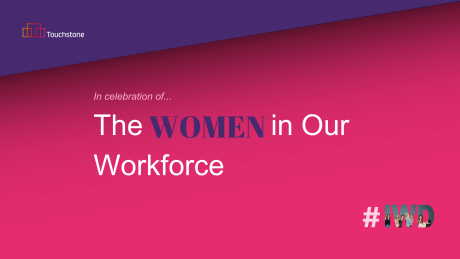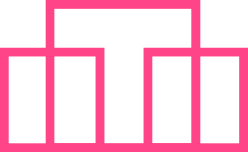In Celebration of The Women in our Workforce: Nicole Pedrosa
In Celebration of The Women in our Workforce: Nicole Pedrosa

In the lead up to International Women’s Day this year, we have taken the time to speak to colleagues across the business to highlight the importance of investing in women’s careers and inclusion in our workplace.
We want to understand how the property sector has evolved to provide women with equal opportunities, and how our business has been able to play a role in empowering women in the sector.
Speaking to Nicole Pedrosa, our Associate Director, she offered her perspective of the changes in the residential and financial sector over the past 20 years, and the impact that these changes have had in our day-to-day.
We started our conversation with Nicole by highlighting three facts that we felt were important to our industry:
- In 1975, women could finally open a bank account in their own name and apply for a mortgage without facing discrimination.
- 47% of buy-to-let landlords in the UK are in fact women.
- 27% of senior leadership in the property sector are female (Real Estate Balance Research).
For myself, the first statistic was even later because I was in South Africa. When I started working in the mid-80s I worked at one of the largest banks in South Africa and I don’t think we had quite caught up with the legislation. At that time, any men coming through the banks were automatically promoted through the ranks. They didn’t have to be better or more qualified, they just had to be a man.
The banks also offered good medical insurance, but if you were a married woman then you weren’t entitled to it. I can remember that things were just starting to change so myself and a lot of other women got together, and we wrote letters of complaint. Eventually they did allow us to have the medical insurance. I was part of that history, albeit a bit later in time and from a South African perspective as opposed to an English perspective.
As a woman signing and witnessing documents in a bank, not being married under a contract meant you weren’t allowed to sign because you had no legal autonomy. You weren’t a legal entity as such, and you couldn’t sign without your husbands’ counter signature.
Tell me a little about yourself and your career.
When I moved to the UK in the late 90s, I worked for Citi Financial, and I managed their escalated complaints team, and then I moved down South, and I started working for Touchstone as a property manager. That was nearly 19 years ago.
I then became a senior property manager, portfolio manager, and I have been an associate director for the last 7 years or so.
Why do you enjoy working for Touchstone?
I think it’s the people, it’s the attitude, and I think that everyone has a voice. That’s not to say that everyone gets their own way, but everybody can be heard and listened to—everyone in Touchstone is approachable.
The work can be quite hard, so when you feel supported and listened to, that makes the hard bits a lot easier, and you still feel valued.
How has Touchstone supported you as a women of our workforce?
I already had my children when I joined Touchstone. So, the only example that I can think of that would separate me from a man is when I needed to go part time to be at home for my children. I reduced my hours for a year, to part time to allow me more flexibility.
From my perspective, and I am in the position where I have influence within my teams, there would never be any discrimination between male and female. It’s what you can produce that is relevant.
In a typically male dominated industry, how far do you believe Touchstone has come as an inclusive employer and what role do you play in achieving this?
Touchstone has come very far, and I don’t believe that gender comes into the equation for us. There are of course situations where women require additional support, because women are different from men, although I think that is a different question and relates to fairness. I do believe that there is equality within Touchstone.
Looking towards the bigger picture, we have implemented flexible working and have a flexible working policy which is looked at on an individual basis. We also have the flexi-hour which is extremely helpful, and we offer maternity leave and benefits. There is a lot of support and people will listen, especially if you are hardworking and diligent.
I look for an individual’s strengths and would like to make sure that their merit is recognised and that there is awareness of the individual’s talent.
What does international women’s day mean to you?
I think it is both an appreciation of the women that have gone before us, and wanting to make sure that the future generations of women will never be oppressed again.
When I see countries like Afghanistan in the news, for example, where women were starting to have freedoms and get education and now that has been taken away from them, that makes me feel both angry and sad.
Women have the ability to add an extra dimension, and I have always liked a mix of men and women because it brings together a lot of different qualities that make a whole.
I am very grateful, and international women’s day is an acknowledgement of the women that have suffered terribly in the past—thinking back to the suffragettes who fought for women to have a voice to vote.
There will always need to be an acknowledgement and a remembrance, and we should never take that for granted.
Tell me about a women who inspires you.
I can’t think of an individual woman, however when I read books and magazines, there are elements of different women that I admire. I admire women that have progressed, and who are brave enough to speak out. Not in an aggressive way, but making quiet statements about what they think is right.
Inspiration can come from multiple different sources. Something that has stuck in my mind from previous discussions is that in the past, women almost had to be men.
You can see looking back at pictures of women from the 80s with their power suits, and big shoulder pads, how hard they had to try to be more male to compete. It is good that we are getting to a place where we can just be a woman and it is much more natural.
When I first started working, any woman who progressed in the ranks was automatically believed to have gotten there for all the wrong reasons. It was often spoken about, and it was extremely demeaning. Does she not have intelligence? She certainly had resilience.
I now have a granddaughter and it is comforting to think that she wouldn’t have to experience that type of discrimination just because of her gender.



